News
Survey analyses children's consumption of sports drinks
29 Jun 2016A survey by Cardiff University School of Dentistry looked at 160 children in four schools across South Wales and concluded that children are attracted to sports drinks because of their sweet taste, low price, and availability.

Published in the British Dental Journal, a survey by Cardiff University School of Dentistry looked at 160 children in four schools across South Wales and concluded that children are attracted to sports drinks because of their sweet taste, low price, and availability, with most parents and children not aware that sports drinks are not intended for consumption by children.
Half of the children surveyed claimed to drink sports drinks socially and most (80%) purchased them in local shops. The majority (90%) also claimed that taste was a factor and only 18% claimed to drink them because of the perceived performance enhancing effect. Price was one of the top three recorded reasons for purchase and, of particular concern, 26% of children also cited leisure centres as purchase sources.“The purpose of sports drinks are being misunderstood and this study clearly shows evidence of high school age children being attracted to these high sugar and low pH level drinks, leading to an increased risk of dental cavities, enamel erosion and obesity,” said Maria Morgan, Senior Lecturer in Dental Public Health at Cardiff University. “Dental health professionals should be aware of the popularity of sports drinks with children when giving health education or advice or designing health promotion initiatives.”The Faculty of Sport and Exercise Medicine (FSEM) is calling for tighter regulation around the price, availability and marketing of sports drinks to children, especially surrounding the school area, to safeguard general and dental health.“The proportion of children in this study who consume high carbohydrate drinks, which are designed for sport, in a recreational non-sporting context is of concern,” said Dr Paul D Jackson, President of the FSEM. “Sports drinks are intended for athletes taking part in endurance and intense sporting events. They are also connected with tooth decay in athletes and should be used following the advice of dental and healthcare teams dedicated to looking after athletes. Water or milk is sufficient enough to hydrate active children, high sugar sports drinks are unnecessary for children and most adults.”“The rise of sports drinks as just another soft drink option among children is a real cause for concern, and both parents and government must take note,” said Russ Ladwa, chair of the British Dental Association's Health and Science Committee. “They are laden with acids and sugars, and could be behind the decay problems we’re now seeing among top footballers.”“Sports drinks are rarely a healthy choice, and marketing them to the general population, and young people in particular, is grossly irresponsible. Elite athletes might have reason to use them, but for almost everyone else they represent a real risk to both their oral and their general health.”The survey also concluded that there is particular confusion over the definition of a sports versus an energy drink. However, from a dental and wider health perspective, these two drinks have similar detrimental effects due to their high sugar content and low pH.Related news

UK to ban junk food TV advertisements before 9pm
3 Oct 2024
In a bid to reduce childhood obesity, the UK government has introduced a policy, coming into effect on 1 October 2025, banning junk food advertising on television before the 9pm watershed.
Read more
Which food and beverage brands made TIME’s Most Influential Companies list?
2 Oct 2024
Chickpea pasta, prebiotic sodas, food boxes, non-alcoholic beer, and a soil carbon marketplace are the specialties of the five food and beverage brands that earned a spot on TIME’s 2024 list.
Read more
New environmental food scoring standards emerge
30 Sep 2024
EIT Food and Foundation Earth collaborate to launch environmental food scoring for products entering the global supply chain.
Read more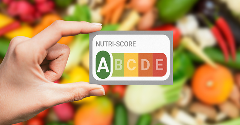
Danone removes NutriScore from products
20 Sep 2024
Following an algorithm update that gives some of its sweetened drinks a worse score, Danone has removed the front-of-pack label, NutriScore, from all of its products – putting profit before public health, say campaigners.
Read more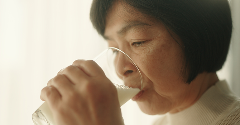
Nestlé develops a new fat reduction method for dairy ingredients
26 Aug 2024
A Brazil-based Nestlé research and development team has developed a way to reduce the fat in milk powder by as much as 60%, without impacting the key characteristics that consumers enjoy.
Read more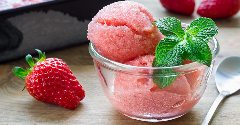
Better Juice expands its range to sorbets
16 Aug 2024
Food tech startup Better Juice has developed a technology to reduce the sugar content in fruit sorbets. The process retains the natural vitamins, minerals, and flavours of fruit, while offering manufacturers an easy-to-implement and scalable solution t...
Read more
German study reveals high sugar, fat, and salt levels in children's foods
13 Aug 2024
The food industry is making slow progress in reducing the high levels of sugar, fat, and salt in German food and beverage products marketed to children, according to the Max Rubner Institute (MRI).
Read more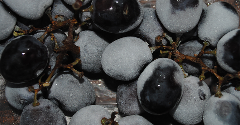
Swedish court overturns prohibition on winery’s use of imported frozen grapes
12 Aug 2024
Swedish company Drood Winery has successfully challenged the Swedish Food Agency’s decision to prohibit the production and sale of their product made from frozen grapes imported from Iran.
Read more
Paris Olympics: Food and beverage brands champion health, fun, and sustainability
5 Aug 2024
Food and beverage brands are aligning with the Paris Olympics 2024 Food Vision, which emphasises sustainability, local sourcing, and plant-based diets.
Read more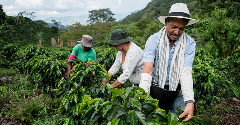
The coffee supply chain is failing farmers, says Solidaridad
30 Jul 2024
The coffee industry’s economic model means its profits do not reach farmers, despite there being enough value to be shared all along the supply chain, according to a new report by Solidaridad Network and IDH.
Read more